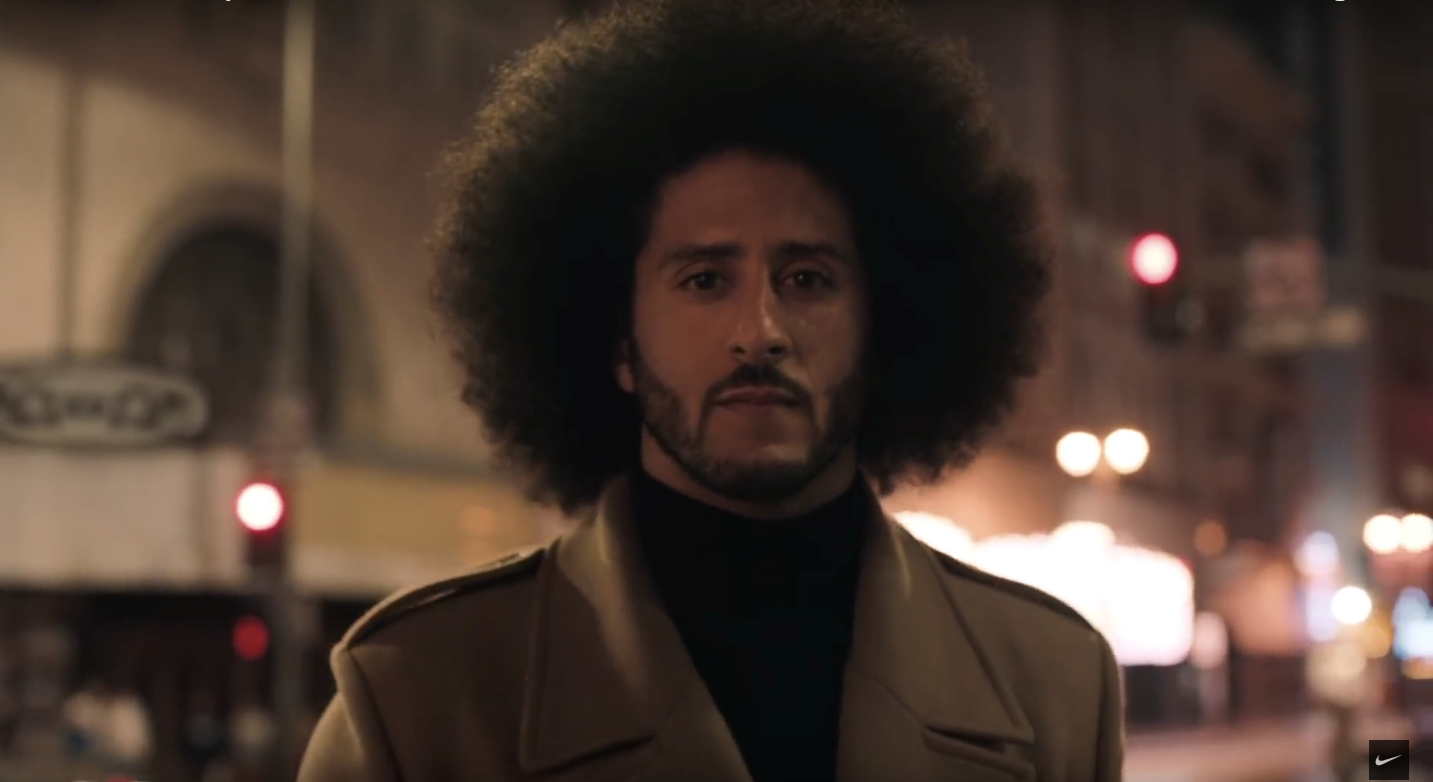Opinion: Should brands take a stand in controversy?

In the recent Nike campaign, it’s been interesting to look into the lessons of how brands should manage risk when tackling controversy through brand purpose, says Ben Hayman of brand purpose consultancy Given
Nike’s recent ‘Just Do It’ campaign, featuring former San Francisco 49ers quarterback Colin Kaepernick, has caused a media storm. So far, the campaign is estimated to have generated at least $43m worth of media coverage and, since its launch, the #NikeBoycott hashtag is trending on Twitter. Despite the brand’s initial share price falling as a result of the campaign, last week the brand’s shares closed at an all time high and, online, sales are up 31%.
The results of this campaign come as no surprise. What is perhaps more significant in the analysis of ‘Just Do It’ is how Nike strategically managed the risks around the campaign. How getting involved in a controversy (which had already polarised the US) meant that taking a stand would alienate significant numbers of Nike’s customers but would connect in a much deeper way with a far more valuable audience for the brand.
What’s interesting and different about Nike’s campaign is that it is adopting an individual’s cause, initiative and agenda, which is risky. It is risky because Nike is a brand, not a person. It has brand values, it has brand ethics, but can a corporate entity have morals, sentiment and human experience? Brands that attempt to hold a mirror up to a sub-culture or movement are in danger of seeming inauthentic.

This particular campaign is also risky because it is much, much bigger than Nike; bigger than sport. The brand is engaging with a hugely complex issue. It is an issue that touches on American history as well as American values. It is not about institutional racism, freedom of speech, civil liberties. It is about all of that and more. This is dangerous, but also, important territory. The campaign has polarised consumers, because the original issue polarised consumers.
This particular campaign is also risky because it is much, much bigger than Nike; bigger than sport. The brand is engaging with a hugely complex issue. It is an issue that touches on American history as well as American values. It is not about institutional racism, freedom of speech, civil liberties. It is about all of that and more. This is dangerous, but also, important territory. The campaign has polarised consumers, because the original issue polarised consumers. Many Americans say Kaepernick’s stand was unpatriotic, disrespectful and anti-American, rather than anti-racist.
There is also enormous risk in Nike taking on this issue and being found to be hypocritical. If people accused Nike of racism, sexism or showed the business to be unethical in the way it treats people, this could result in long-term reputational damage. Nike is a huge sprawling mass of individuals. It has enormous supply chains and operations that stretch the length and breadth of the planet. Across this business it is possible, actually it is highly probable, that there are individuals who do not behave in a way that is represented through the Nike brand. This again plays to the difference between a business taking up a cause and an individual doing the same.
There is risk in overexposure. The campaign has now generated so much noise that it is being hacked by people who see this as a platform to have some fun or are taking their own stand. If the message becomes appropriated by a much larger audience, there is a risk that this could undermine, not just the intent of the Kaepernick campaign, but also that of the ‘Just Do It’ celebration. The days when ‘no publicity is bad publicity’ are gone and the investment in a big idea, targeted at specific audiences can easily come undone. And brands are fair game when it comes to attempts to connect through challenging or innovative communications campaigns. We’ve seen the aftermath of the Gary Lineker Walkers crisps meme and of course Boaty McBoatface. If you search Nike ‘Just Do It’ today, you will see that the campaign has gained notoriety, acclaim, but also hundreds of thousands of new interpretations.
Nike’s campaign risks alienating some audiences in the US who disagree with the message, but it will also have been a calculated risk. Nike has a track record of backing new talent, outsiders and individuals who have polarised opinion. Nike will have done its homework on any potential damage that this campaign could cause.
Ultimately, Nike has made a strategic decision about what matters to its core and future audience. As with any celebrity endorsement, it has aligned with an ambassador that represents its brand idea but critically connects that idea to its core target audience. Nike has made a decision about the relative value of the audiences that will take umbrage with the campaign, and those who will feel it connects with them. As well as adopting a position that highlights an important issue, it has made a bet on an audience.
Last year Kaepernick’s football shirts were at number 39 in the NFLPA’s official NFL merchandise Top 50 list. The timing of the campaign suggests that this was a considered move from the brand, with the NFL’s new season about to begin.
The Nike campaign is a great move and is a lesson in how brands can manage and control risks when courting controversy. And in this case, the campaign is a strong, strategic move for the brand. It shows that brands can and should get involved in issues beyond their core business and demonstrates the opportunity for brands to grow by doing good.
Ben Hayman is managing partner of brand agency Given












